Reducing Risks by Improving Interoperability between Slovakia and Hungary for Better Preparedness (RISKHUB)
The project’s main aim is to strengthen disaster preparedness and response capacity to climate change-related risks along the Hungarian-Slovakian border by improving the cooperation of volunteer fire brigades and municipalities.
The main target group are volunteer fire fighters from Borsod-Abaúj-Zemplén, Komárom-Esztergom and Győr-Moson-Sopron counties from Hungary, Košice-okolie, Komárno and Dunajská Streda District from Slovakia. Stakeholders share operating procedures, know-how, experience, and capacities in an organized way. A mobile application collects and registers capabilities and assets, alerts and mobilizes units in case of emergencies, and arranges project events.
Based on needs, identified gaps, and good practices, standardized training, and capacity development take place. In order to maximize learning opportunities for the main target group, the training of trainers method is used by engaging key personnel from volunteer fire brigades. Capacity development is necessary in order to have a sufficient, standardized toolset for practicing during the events.
Minivans are equipped with communication tools to support on-site training and to serve as mobile coordination points during interventions. Trailers are furnished with technical equipment needed to respond to flash floods, extreme storms, wildfires, and as medical support to treat the injured during these emergencies. Adult learning methods support preparedness for interventions, including existing and newly developed e-learning modules in Slovakian, Hungarian and English.
The developed operational capacity allows trained key personnel to travel around their region and transfer knowledge to other members; thus, ensuring sustainable training possibilities for volunteers.
Joint preparedness activities lead to a final, large-scale field exercise with over a hundred participants required to prove their readiness. This event’s objectives are to test their procedures, coordination, interoperability, and communication.
The specific objective of the project is to improve the level of cross-border inter-institutional cooperation and broadening cross-border cooperation between citizens.
The specific objectives of the project:
- Harmonize standard operating procedures
- Strengthen cooperation between organizations from both Slovakian and Hungarian sides of the border
- Develop standardized training environment, including e-learning and practical toolset
- Develop an inventory of available assets and standardize alerting procedures
- Reach better preparedness by training and exercising jointly
- Improve public awareness about climate change-related risks
Number of Partners: 7
Project Budget: 395 129 EUR
Funded by: SKHU1902
Project Duration: 01/10/2020 – 30/09/2022
Project Lead Partner: Budapest Firefighter’s Association
Contact Person: Zsolt Kelemen, project manager
Contact Details:

